Just In
- 3 hrs ago

- 5 hrs ago

- 6 hrs ago

- 8 hrs ago

Don't Miss
- Movies
 Do Aur Do Pyaar Box Office Collection Day 2 Prediction: Vidya-Pratik's Rom-Com To Cross 1 Cr On Saturday
Do Aur Do Pyaar Box Office Collection Day 2 Prediction: Vidya-Pratik's Rom-Com To Cross 1 Cr On Saturday - Education
 IISER 2024 Registration Started; Know how to apply @iiseradmission.in and more details
IISER 2024 Registration Started; Know how to apply @iiseradmission.in and more details - News
 TS Inter Results 2024 Manabadi: 1st And 2nd Year Results Expected Soon
TS Inter Results 2024 Manabadi: 1st And 2nd Year Results Expected Soon - Sports
 IPL 2024: Gautam Gambhir Always Knew Sunil Narine Would Become A T20 Legend
IPL 2024: Gautam Gambhir Always Knew Sunil Narine Would Become A T20 Legend - Finance
 Elon Musk Postpones India Trip, Tesla's Indian Market Entry Delayed
Elon Musk Postpones India Trip, Tesla's Indian Market Entry Delayed - Technology
 Best Noise-Cancelling Earbuds Under Rs 5,000: CMF Buds Pro, Redmi Buds 5, Realme Buds Air 5, and More
Best Noise-Cancelling Earbuds Under Rs 5,000: CMF Buds Pro, Redmi Buds 5, Realme Buds Air 5, and More - Automobiles
 Tesla CEO Elon Musk's Much-Awaited Visit to India Deferred, Leaving Questions Unanswered
Tesla CEO Elon Musk's Much-Awaited Visit to India Deferred, Leaving Questions Unanswered - Travel
 Journey From Delhi To Ooty: Top Transport Options And Attractions
Journey From Delhi To Ooty: Top Transport Options And Attractions
10 Common Cooking Mistakes You're Probably Making
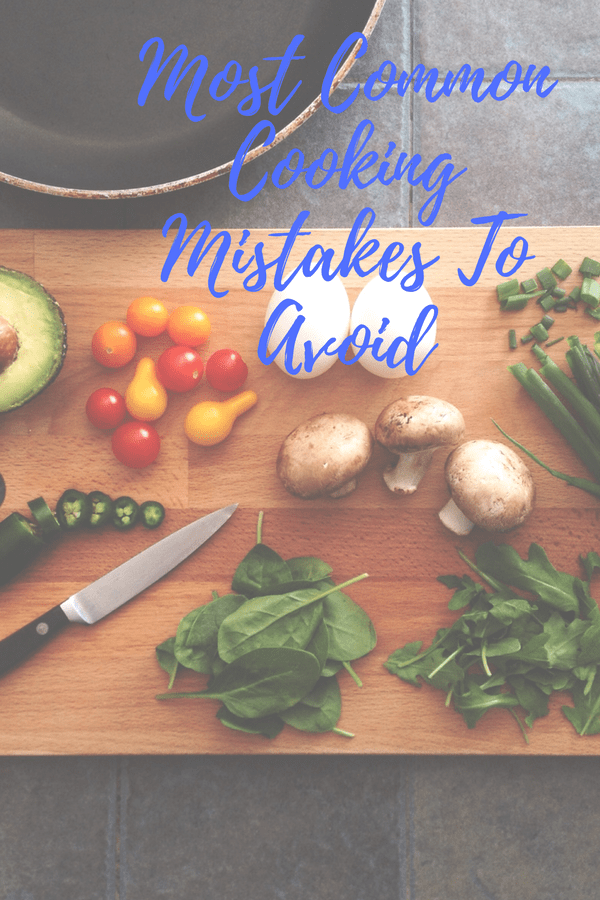
Cooking is an art, as it involves creativity, imagination and the right method. It doesn't matter whether you are a professional or an amateur cook. The cooking method might be different but the ingredients are the same.
Many of you like to eat vegetables and cook them in a proper way to enhance the taste. Cooking vegetables can be as simple or as complicated, depending on the way you make it. You want it to be a delicious dish by retaining all the maximum amount of flavour and nutrients.
However, sometimes, an innocent error can lead to a disappointing dish or you might even be cooking your veggies in the wrong way by sucking out all the nutrients from it.
Whether you are struggling with cooking vegetables or you are looking for more creative ways to cook them, here are the 10 common cooking mistakes you're probably making while cooking food. Make sure to avoid these at any cost.
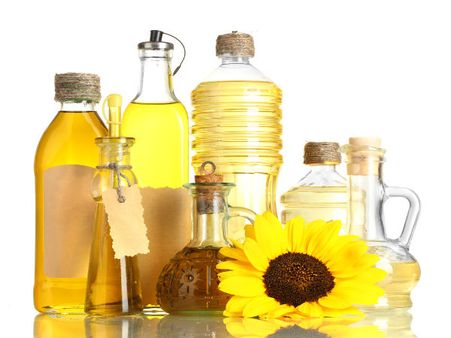
1. Using The Wrong Oil
If you are up for experiment, you should use other kinds of cooking oil as well. Experiment with other oils besides extra-virgin olive oil, because olive oil does not work well in every dish that you cook. If you are cooking a dish which requires high heat, you should use a different oil for that.
Top 11 Healthiest Cooking Oils That Will Keep You Healthy
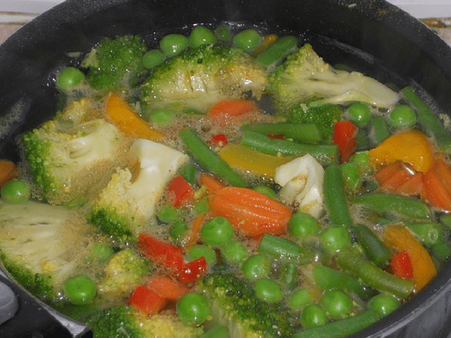
2. Boiling Veggies
Boiling the vegetables is an old method of cooking vegetables, which can really deplete the amount of nutrients in the vegetables. It can end up all soggy. Instead, you can try steaming the veggies that will keep all the nutrients intact. Steaming them would benefit your health too.

3. Overcooking
One of the common mistakes you make while you are cooking vegetables is to overcook them. Overcooking the vegetables might burn them easily and also result in the loss of nutrients. Overcooked vegetables is not good for your health because it is burnt, nutrients are lost and this also drains out the flavour.

4. Throwing Out Leftovers
When you are cutting your vegetables, you must be throwing out the skin and rinds, which actually contain most of the nutrients. To increase the nutritional value, cook your veggies with the leftover pieces and then remove them before serving.

5. Not Adding Salt
Salt adds flavour to any dish that you cook whether you're steaming or boiling it. It is composed of sodium and chloride which helps in maintaining the fluid balance of the body. Sodium helps the body to absorb chloride, amino acids, glucose and water. Salt also regulates blood pressure.
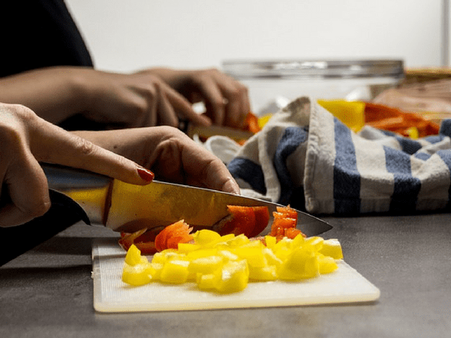
6. Chopping Veggies Too Early
When you are chopping your vegetables far ahead of your cooking time, they can get dehydrated and lose their fresh flavour. Don't freeze them after chopping, as it may pose a health risk. Chop them before you are ready to cook, so that they retain their flavour and crispness.
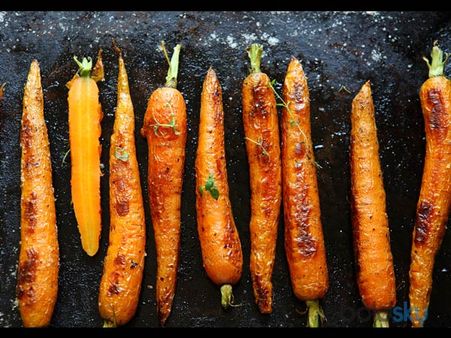
7. Exposing Veggies To Heat
If you are roasting the vegetables to heat for too long, it will destroy the majority of the vegetable's nutrients. Boiling them is also not a good idea because this method causes water-soluble micro-nutrients to leach out into the water which is then thrown away.

8. Not Pairing Veggies With Fat
Pairing a little bit of fat with orange, yellow, red and dark-green vegetables helps the body absorb cancer-fighting and heart-healthy nutrients like lycopene and beta-carotene. Pair your vegetables with healthy sources of fat to reap the maximum nutritional benefits.
12 Best Foods For Eye Health That Will Help Improve Your Eyesight
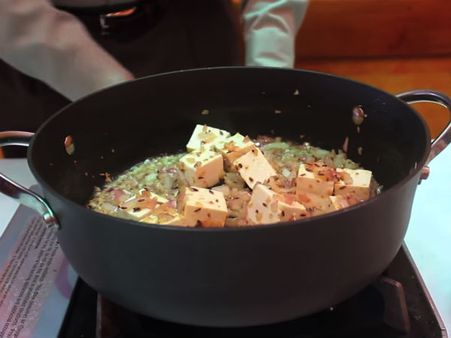
9. Overcrowding the Pan
If you have the habit of overcrowding the pan with as much food as possible to cook faster, you are doing a mistake. Overcrowding the pan with food doesn't let the food cook evenly and it can result in an uneven flavour, texture and temperature. This may result in inadequate nutrient supply to the body.

10. Coating Pans With Non-stick Spray
Non-stick spray is the fastest, simplest and the lest messy method. Most non-stick sprays aren't just vegetable oil. If it is butter flavoured, it is likely to contain the flavouring chemical diacetyl, which has been linked to lung disease.
Share this article!
If you liked reading this article, share it with your close ones.
This Is What Happens When You Don't Sleep For A Day
-
 tips tricksMistake Makeovers For Soups
tips tricksMistake Makeovers For Soups -
 healthAdding A Pinch Of Salt To Your Tea Can Transform Your Health, Combats Skin Issues, Migraine, Know The Benefits
healthAdding A Pinch Of Salt To Your Tea Can Transform Your Health, Combats Skin Issues, Migraine, Know The Benefits -
 insyncWhy Does A Splash Of Seawater Can Sting Our Eyes While A Dip In Lake Doesn't? Let's Talk About Sea Salinity!
insyncWhy Does A Splash Of Seawater Can Sting Our Eyes While A Dip In Lake Doesn't? Let's Talk About Sea Salinity! -
 insyncHow Did We Go From Salt To Salary? History Behind Concept Of 'Salary' Will Make You Appreciate Ancient Roots
insyncHow Did We Go From Salt To Salary? History Behind Concept Of 'Salary' Will Make You Appreciate Ancient Roots -
 insyncPink, Red, Gey Or Black? Unique Profile Of These 12 Salt Will Transform Your Dishes Into Culinary Masterpieces
insyncPink, Red, Gey Or Black? Unique Profile Of These 12 Salt Will Transform Your Dishes Into Culinary Masterpieces -
 healthDoes This Everyday Cooking Ingredient Trigger Diabetes?
healthDoes This Everyday Cooking Ingredient Trigger Diabetes? -
 healthUnravelling Diet’s Dark Side: The Salt and Brain Connection
healthUnravelling Diet’s Dark Side: The Salt and Brain Connection -
 healthFrom Salt To Slim: How Reducing Salt Consumption Help Lose Weight
healthFrom Salt To Slim: How Reducing Salt Consumption Help Lose Weight -
 healthReasons Why You Should Reduce Your Salt Intake; Does Salt Intake Affect Men And Women Differently?
healthReasons Why You Should Reduce Your Salt Intake; Does Salt Intake Affect Men And Women Differently? -
 skin careSalt For Skincare: Different Ways To Use It
skin careSalt For Skincare: Different Ways To Use It -
 kidsEffects Of Salt On Your Child's Growth And Development; What Is The Recommended Amount
kidsEffects Of Salt On Your Child's Growth And Development; What Is The Recommended Amount -
 wellnessStress Levels Are Associated With High Salt Intake, Study
wellnessStress Levels Are Associated With High Salt Intake, Study


 Click it and Unblock the Notifications
Click it and Unblock the Notifications



